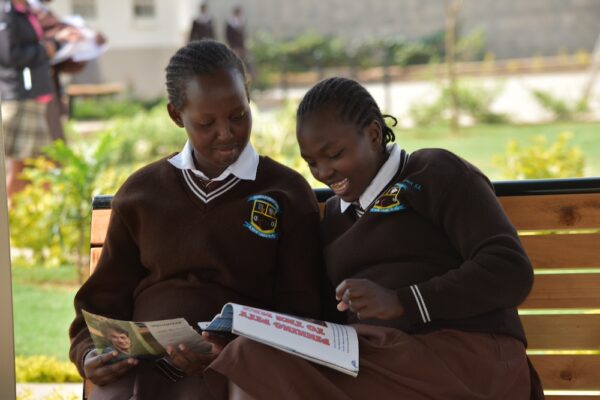
Two students of Kajiado Adventist School and Rescue Center read under a gazebo on the renovated campus in Kajiado, Kenya, July 10, a day before the school’s official inauguration. [Photo: Marcos Paseggi, Adventist Review]
July 28, 2024 | Kenya | Marcos Paseggi, Adventist Review
“Grace, grace, God’s grace, grace that will pardon and cleanse within,” Kajiado Adventist School and Rescue Center (KASS) students sang.
The hymn, whose lyrics most students sang by heart, filled the new school cafeteria and meeting hall on the school campus in Kajiado, Kenya, on July 10. It was the eve of the official reinauguration of the school, which was substantially renovated in a massive, six-year project funded by Maranatha Volunteers International donors.
A day later, representatives of Maranatha, the volunteer-based independent supporting ministry of the Seventh-day Adventist Church, would hand over the keys in an official ceremony on the campus. On the eve of July 10, however, the mood was festive as students shared traditional songs and dances of their Maasai culture and some skits that helped guests to learn about the impact of the school on their lives.
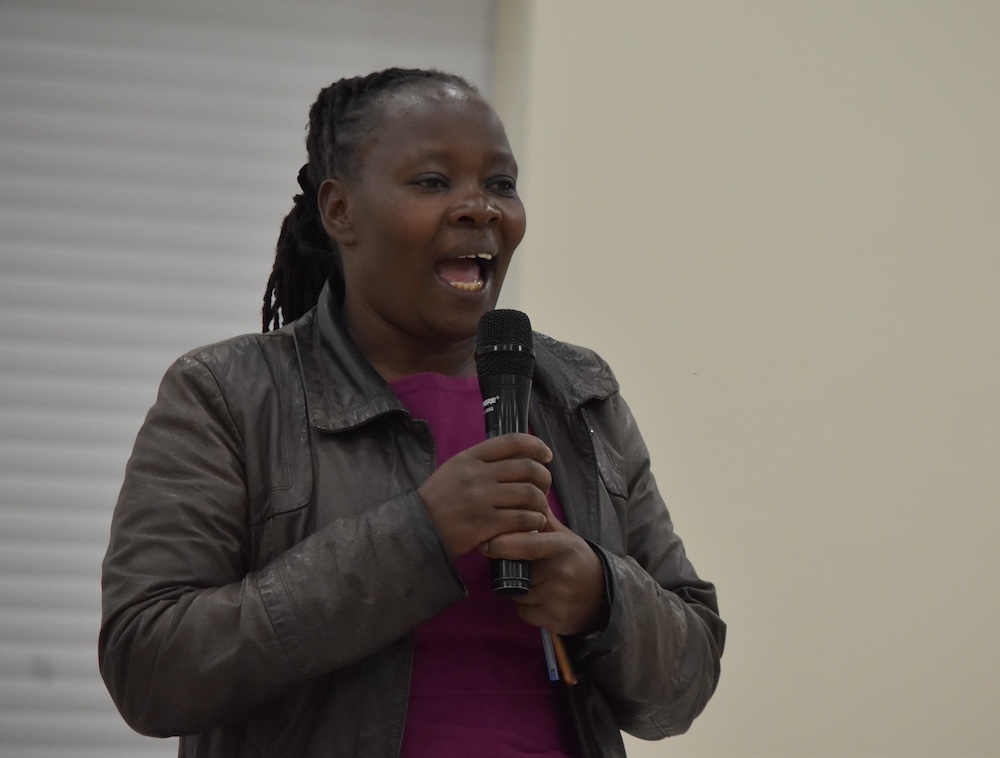
A House of Refuge
KASS opened its doors several decades ago not only as a regular Adventist school but as a center to welcome Maasai girls running away from the traditions of an early marriage and female genital mutilation (FGM). While FGM is prohibited by law in Kenya, it is still prevalent in small, isolated villages in the Masai highlands, and enforcement is difficult and uneven.
Sometimes, the police rescue some of the girls and take them to the Adventist school in Kajiado. Other times, the girls themselves run away without food or water through rugged terrain to reach the rescue center they have heard about. Either way, when they make it to the school, they find food, shelter, and an Adventist education, regional church leaders said. Above all, they find dignity and love.
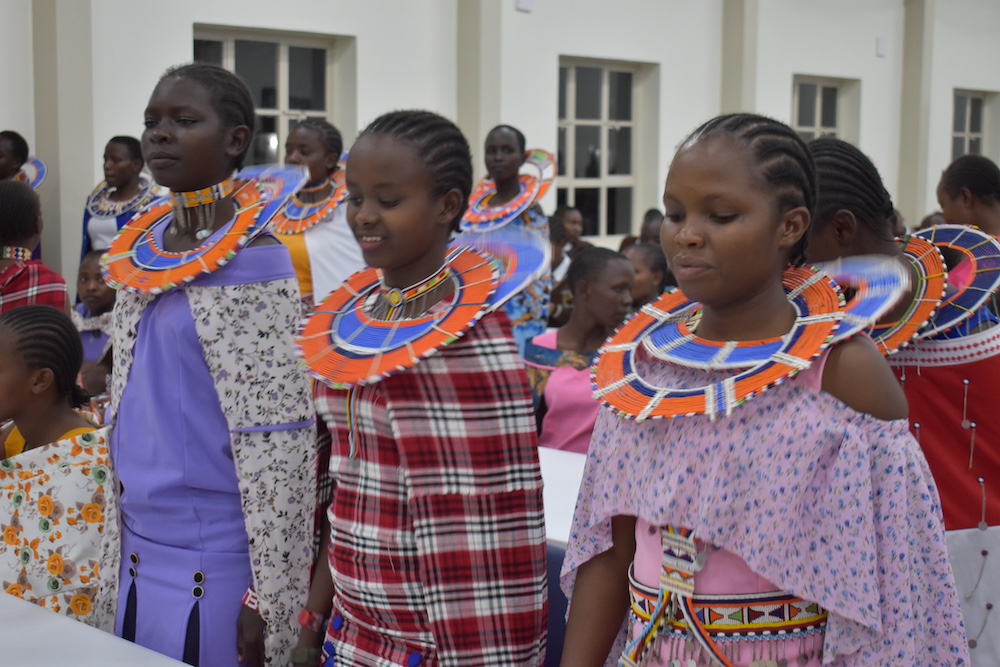
Kajiado students share a traditional Maasai greeting dance with donors and other guests. [Photo: Marcos Paseggi, Adventist Review]
When Maranatha arrived at Kajiado in 2018, the place was in disrepair. There were not enough classrooms or dorms, and not enough water to support expansion plans. But after students fasted and prayed for two months, the Maranatha crew’s drilling rig hit an abundant source of underground water, which allowed them to move forward with construction plans and start a vegetable garden to complement the students’ diet.After six years of dedicated work and the support of local crews, staff, and 1,600 volunteers and donors, Kajiado was ready for the official reinauguration and handover of the keys to the regional church administration. Besides the water well, the renovations and additions to the school included brand-new classrooms, dorms, a science lab, kitchen, and a cafeteria and meeting hall. It also included a massive landscaping effort that saw a dust-filled campus transformed into concrete walking paths surrounded by flowering plants, shrubs, and green lawns.
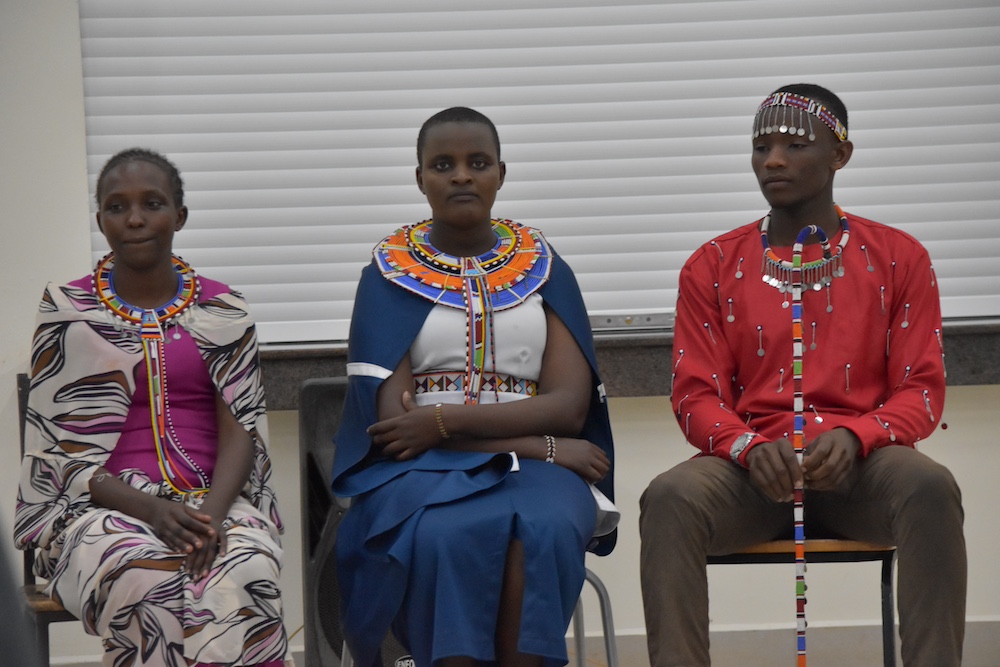
Through drama performances written by Kajiado students, a group of student performers reflected on the challenges of early marriage and female genital mutilation (FGM) among the Masai. [Photo: Marcos Paseggi, Adventist Review]
On July 10, on the eve of the official reinauguration of the school, students shared some of the traditional Maasai songs and dances with donors and other guests who were there to attend the ceremony a day later. At that cultural program, they also performed two drama skits to help people get acquainted with some of their culture-based challenges and highlight how KASS changed their lives for the better.The first skit showed some of the hurdles faced by Maasai girls wanting to escape from an early marriage and FGM. In it, a girl repeatedly escapes her home, only to be apprehended and returned to her family. Eventually, the police and even a judge get involved. According to viewers, the skit accurately described a typical case in that region of Kenya.
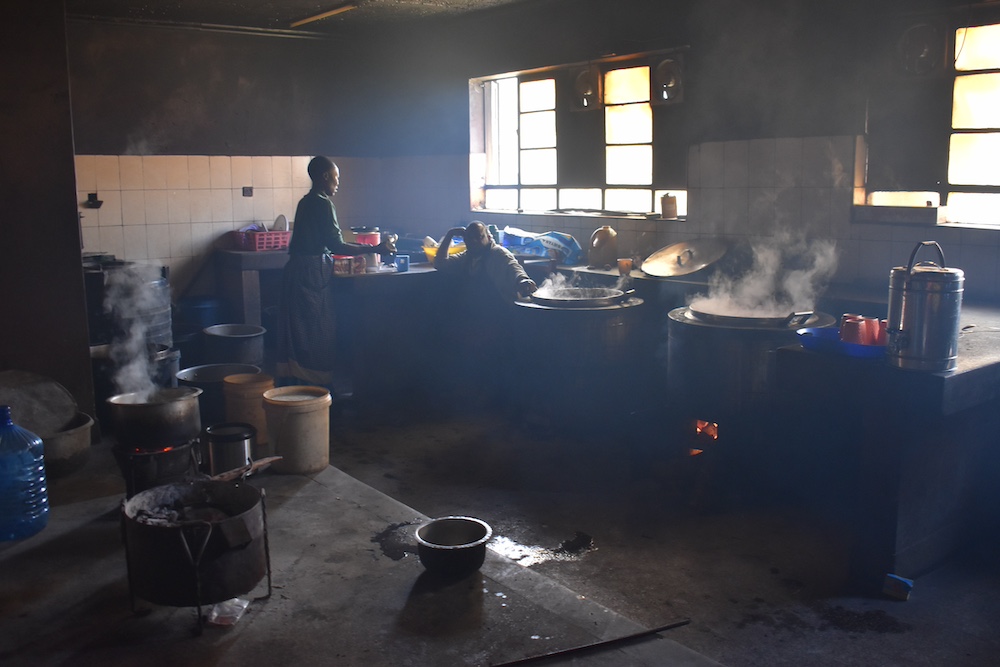
The Kajiado school kitchen in 2022, before Maranatha volunteers demolished it and built a new one on the campus. [Photo: Marcos Paseggi, Adventist Review]
The second skit was put together by the school’s journalism class. In a news report, an investigative report shares the story of “Mr. FGM,” an “evil man” who roams around, hurting girls across Maasai lands. In the skit, he is exposed and denounced for being a scourge to young girls across the land.As the report is wrapping up, the news host is suddenly interrupted.“We have breaking news!” a reporter announces. “We have been informed that there has been a fatal accident. Not far from here, Mr. FGM was traveling full speed when he crashed head-on with Maranatha,” she reports with a faked somber mood. “Reports indicate that Maranatha has been left unscathed from the collision. Mr. FGM, however, has succumbed to his injuries and has been pronounced dead.”
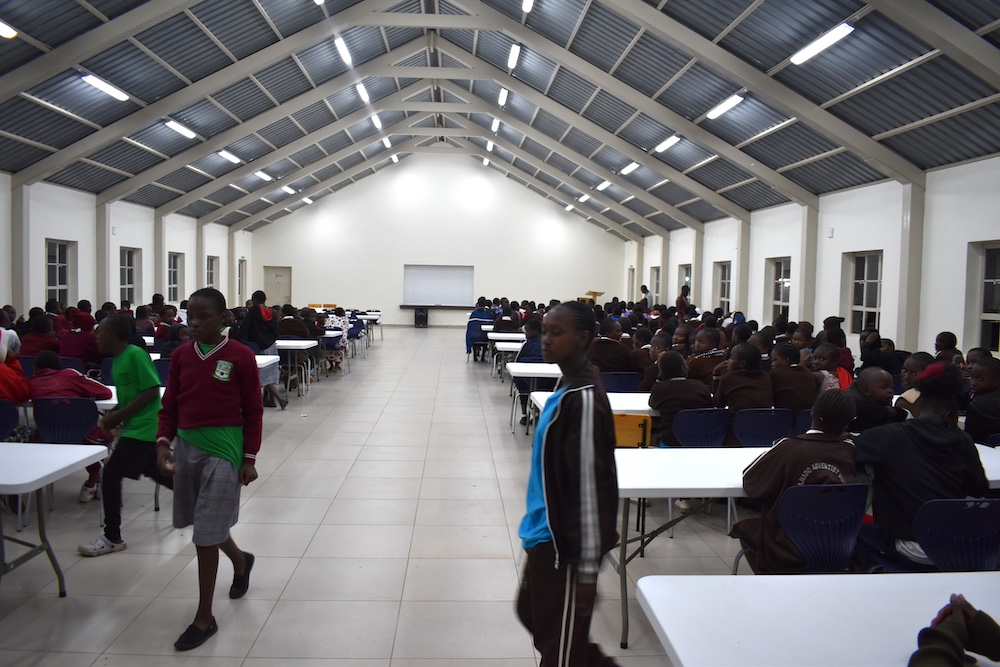
New cafeteria and meeting hall built by Maranatha Volunteers International at the Kajiado Adventist School and Rescue Center. [Photo: Marcos Paseggi, Adventist Review]
A subsequent “funeral” staged by the students confirms the demise of evil FGM and a new day for Maasai girls at Kajiado.“It might look shocking, how they dealt with the subject and even laughed about it,” one of the leaders who attended the program commented after the skit. “But it’s very likely it’s good for them to talk about it, as it helps these girls to heal.”“Grace, grace, God’s grace,” everyone sang. “Grace that is greater than all our sin.”
Maranatha Volunteers International is an independent supporting ministry and is not operated by the corporate Seventh-day Adventist Church.





